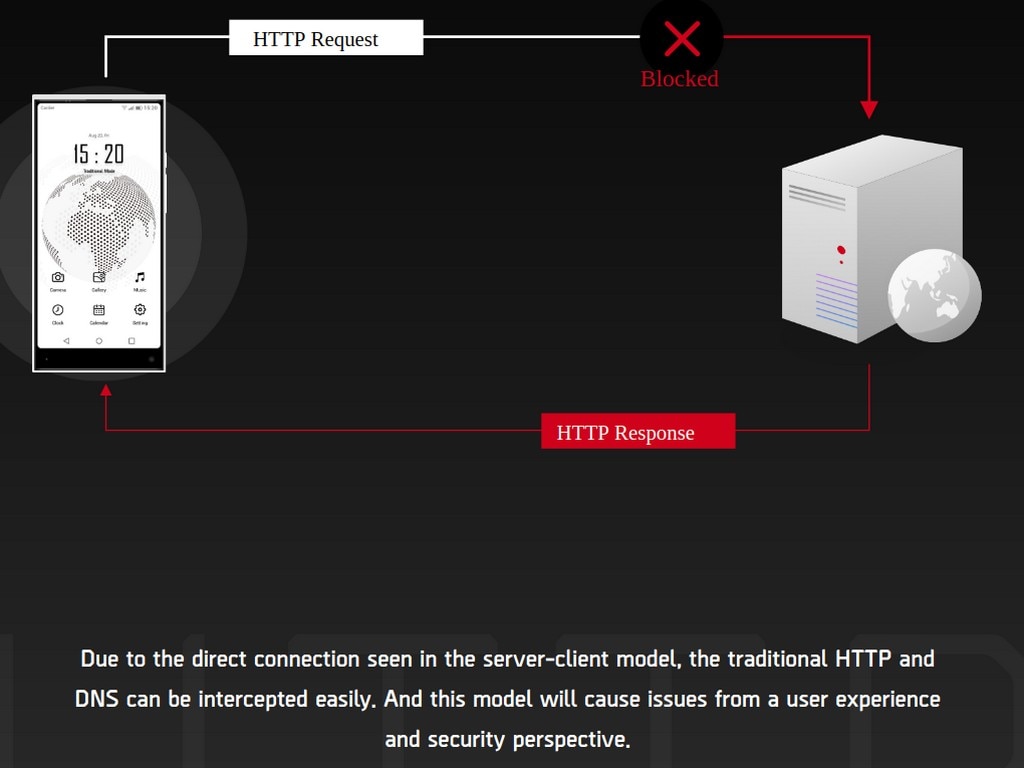Zac CheahMar 26, 2019 16:27:07 IST
Blockchain has a wide range of applications and almost any field can benefit from having such technology at its disposal. Developing applications on blockchain is certainly something that is new and cutting edge — in fact, there is a new word to describe the type of applications that are powered by blockchain. These are called decentralised applications or DApps.
Need for a blockchain ecosystem
The rise of Bitcoin and blockchain gave the world a means for decentralising money and creating peer-to-peer financial transfers. In essence, blockchain for communications removes intermediaries and allows for direct, peer-to-peer communication between parties. This has been a revolution for financial transactions but it promises to forever change communications, too.
By placing the responsibility of establishing channels of communication in blockchain technology, responsibility for making sure messages are sent securely is taken care of by cryptography and a vast, distributed network controlled by no one. This means individuals and businesses, not centralised intermediaries — such as telecommunication providers — have control over how their information is shared and with whom.

Representational image.
A blockchain ecosystem can strike the balance of how telecommunications and the internet currently run, returning powers and rights to consumers. The implementation of a decentralised network shifts telecommunications and the internet from a system where dominant interests control and filter communication to one in which all participants contribute to distribute information and have equal rights to do so.
Issues decentralisation can address
Control over data
People world over are increasingly concerned about their data privacy online, stemming chiefly from the monopolistic power of large telecommunication companies, dominant players in the internet ecosystem and government. A worldwide survey by IPSOS in 2018 shows a majority of consumers are more concerned about the issue this year than last; privacy is rising year-on-year as an issue of importance.

Traditional communication.
Leading contributors to consumers’ concerns include intrusions from:
- Their own national government — USA (78 percent), India (77 percent) and Turkey (77 percent).
- Dominant telecommunications and internet companies — USA (83 percent), France (78 percent) and South Korea (78 percent).
- Cross-national concern about the big players in social media (63 percent) and online apps (48 percent).
Decentralised blockchain answers consumers’ concerns about privacy by taking control of their data wherein no one — be it a third party, ISPs or even network nodes can control, limit or eavesdrop on your data. Only the owner of the private key can encrypt, send or destroy information in the network.
[embedded content]
Trust
Businesses can connect directly with each other and consumers when conducting commerce, solving the problem of requiring trust for exchange. With transactions and connections governed by blockchain, cryptographic protocols and a dispersed network, not controlled by one actor alone, businesses can connect directly to establish commercial relationships.
This opens up a host of ways for parties to conduct business with each other directly via the blockchain without the need to agree on a trusted intermediary first. These include:
- Smart Contracts: Use of smart contracts to execute complex trades between parties instantly, with the terms of deals verified via the blockchain, such as the distributed trading of commodities, international trades or distribution of commodities between a wide variety of actors such as electricity trading.
- Unique identification: Independent identity and credential verification for products passing through supply chains, disputes about authenticity and provenance and individuals’ credentials.
- Secure storage: Of sensitive commercial information such as custody for assets, wills, and insurance.

Decentralised blockchain routing.
Where is the industry headed
Decentralisation offers wide benefits for conducting business especially in a world where the applications for doing business and exchanging services are centralised. Decentralised applications, by contrast, are controlled by no single entity. They allow consumers, businesses and other content creators to connect directly, cutting out the middlemen and changing the terms on which business is done across industries. At present, many apps extract value not just from generous commission structures but also from users’ data or by imposing terms on content creators’ copyright. Decentralised applications grant this power entirely to users.
Decentralisation has given birth to a next-generation internet service framework which has the ability to improve the existing internet and blockchain architecture, combining the benefits of both worlds and using the most commonly-used technical solutions.
[embedded content]
It enables swift migration of businesses onto the blockchain service network and allows each developer to have absolute control over their own data, thus effectively removing barriers between two businesses.
Lately, one has witnessed a lot of innovation leading from the blockchain technology and it is only expected to grow.
Blockchain-powered phones have already seen the light of day wherein the consumers control the data, allowing them to make phone calls, send messages, share files and browse the internet in ways that are entirely encrypted and secure and independent of centralised carriers.
Other companies have sought to capitalise on growing consumer preference for privacy, blockchain-based and cryptographically secure communication through the release of so-called blockchain phones, which primarily employ secure blockchain wallets promising users the chance to hold cryptocurrencies in their mobile devices securely. The blockchain powered phones stand as a unique example for using distributed ledger technology to extend the uses and benefits of blockchain to telephony, messaging and digital communication of all kinds. DApps are next chapter in this evolution.
The author is the CEO of Pundi X.
Tech2 is now on WhatsApp. For all the buzz on the latest tech and science, sign up for our WhatsApp services. Just go to Tech2.com/Whatsapp and hit the Subscribe button.
Post a Comment